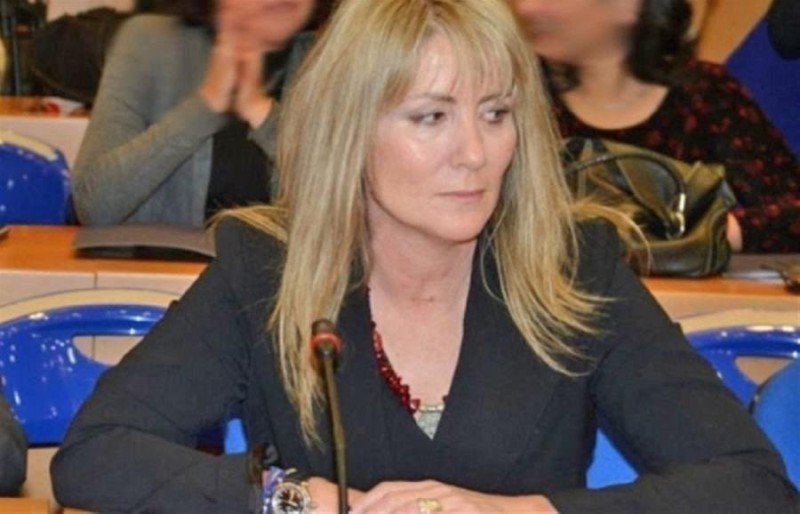Touloupaki has faced an uphill battle to hold on to her position following a change in government in July of 2019, which brought a political party to power that includes several officials she was actively investigating.
Its most recent legislative maneuver may lead to her ousting.
A new bill presented to parliament on Wednesday by the Ministry of Justice attempts to abolish her office entirely, and replace it with the Financial Crime Department. Critics believe the new department will abandon a probe into whether high-ranking politicians may have received bribes from Novartis, a Swiss pharmaceutical firm that is one of the largest in the world.
Novartis reached a US$347 million settlement last summer with the U.S. Department of Justice (DoJ) and the Securities and Exchange Commission (SEC) for violating the Foreign Corrupt Practices Act – which criminalizes foreign bribery by companies operating on U.S. soil – in which it acknowledged making illegal payments to Greek healthcare providers and officials.
But the settlement did not explicitly address what Touloupaki’s office has, in cooperation with U.S. authorities, continued to investigate since 2017: whether several high-ranking politicians, including two former Greek prime ministers, were involved in the scandal as well.
The alleged bribery allowed Novartis to boost prescription sales at inflated prices, and gain a more dominant position in the Greek healthcare market, despite the fact that Greece was, at the time, facing a severe financial crisis. It has been estimated that the scheme cost the country roughly three billion euros ($3.4 billion).
Antonis Samaras, who served as Greece’s prime minister from 2012 to 2015, was one of several New Democracy party officials named in the investigation, and was quick to aggressively dismiss the allegations.
“Slander is the weapon of cowards, I tell them that they do not touch me. And they can be certain that the slanderers and those behind them will be held accountable to justice,” said Samaras in February 2018, when his party was still the opposition.
After the left-wing populist Syriza party of former prime minister Alexis Tsipras lost power in 2019, New Democracy, led by current prime minister Kyriacos Mitsotakis, began mounting numerous attempts to undermine Touloupaki’s investigation.
Last summer, prosecutors filed criminal charges against Touloupaki, including one felony charge of “abuse of power.”
The Council for Criminal Procedure of Athens denied her request to have the criminal procedure brought against her dismissed, a ruling Adonis Georgiadis, Greece’s minister for development and investment and vice chairman of the ruling New Democracy party, announced on Twitter days before it was officially announced.
Touloupaki subsequently decided to appeal her case to the European Court of Human Rights, arguing that her country’s courts have already presumed her guilt, and that she has therefore not been granted a fair trial.
“The tables have been turned,” Vasilis Chirdaris, a lawyer representing Touloupaki, told OCCRP. “The auditor has become the subject of investigation, and the ones being investigated have become the auditors,” he said.
In addition to her legal struggles, Touloupaki told OCCRP in late August that her home had been burgled. Several documents and computer hard drives were stolen, although nothing else in her home was disturbed.
Days after the incident, Vangelis Triantis, an investigative reporter at Documentonews.gr, said in a posting on Facebook that he too had fallen victim to a burglary after the publication he works for ran stories about the FBI’s investigation into Novartis in January and March 2017. The burglars, he said, stole only laptops from his apartment.
Touloupaki said she was “absolutely convinced” that this was an attempt to silence her investigation into the Novartis bribery scandal, and said she has now become Greece’s number one target, even going so far as to say that she feared for her life.
Wednesday’s proposed bill could be the final nail in the coffin of her years-long investigation, according to her lawyer Chirdaris, who said that in addition to undermining his client, could also set a bad precedent for a country that has long been plagued by corruption.
By merging the anti-corruption prosecutor's office with that of financial crime to form the Financial Crime Department, Cheirdakis explained that the government has resorted to “doing something drastic” that is aimed at removing Touloupaki from assuming any post that concerns government corruption, but it also removes other specialized staff that is equipped to handle other cases of this nature.
“A country like Greece needs a special anti-corruption department,” Cheirdakis said, explaining that political corruption is not the same as the types of theft, embezzlement, or fraud that are typically investigated by the financial crime department that is set to absorb Toulopaki’s anti-corruption office.
Minister Georgiadis welcomed the introduction of the bill, saying on Twitter, “Touloupaki is finished, and the financial (crime) and corruption prosecutor's offices are consolidated.”
Formerly a spokesperson for the Popular Orthodox Rally (LAOS), a far-right populist party, Georgiadis was also under investigation by Touloupaki’s office for his role in the Novartis scandal while serving as Minister of Health.






